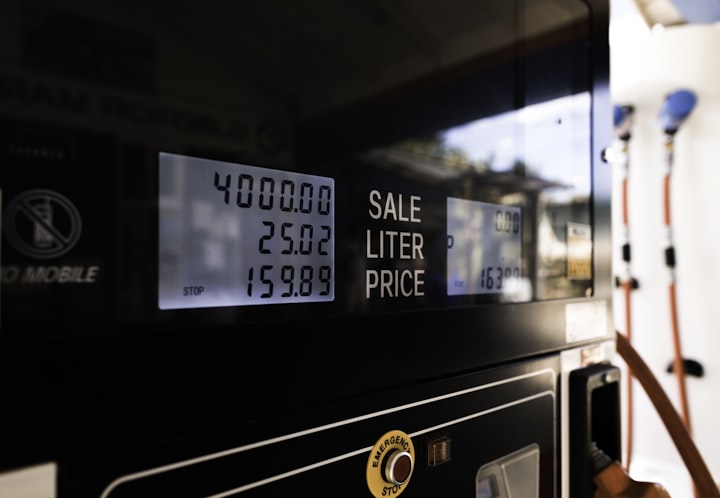Fuel Subsidy in Nigeria:
Challenges, Strategies, and Solutions.

This essay provides a comprehensive analysis of fuel subsidies in Nigeria, exploring its history, impact, major challenges, and potential solutions. With a focus on the Nigerian context, this paper aims to shed light on the intricacies surrounding fuel subsidies and offers practical recommendations for addressing this complex issue. The analysis takes into account the socioeconomic implications, government policies, and international best practices to provide a holistic view of the situation. By understanding the underlying factors contributing to fuel subsidies in Nigeria, it becomes possible to devise effective strategies to tackle this longstanding problem.
Introduction
1.1 Background:
Fuel subsidy has been a longstanding issue in Nigeria, with vast implications for the economy, society, and governance. It involves the government's provision of financial assistance to lower fuel prices for consumers, aiming to alleviate the burden of high fuel costs. However, the sustainability and efficacy of this subsidy policy have come under scrutiny due to its inherent challenges and negative consequences.
1.2 Objectives:
This essay seeks to analyze the fuel subsidy system in Nigeria comprehensively. It aims to identify the major challenges associated with fuel subsidies, examine their economic and social impacts, explore international best practices, and propose potential solutions to address this complex issue.
1.3 Structure:
The essay is structured in the following manner: It begins by providing a historical perspective on fuel subsidies in Nigeria, including the reasons for their implementation. Next, it delves into the impact of fuel subsidies on the economy, fiscal stability, and society. The major challenges associated with fuel subsidies are then discussed, including market distortions, corruption, budget constraints, and lack of transparency. The essay subsequently explores various strategies for addressing these challenges, drawing from international best practices and their applicability to the Nigerian context. Finally, the essay presents potential solutions for Nigeria, incorporating aspects such as improving refineries, targeted subsidies, investment in alternative energy sources, and anti-corruption measures.
Historical Perspective
2.1 Evolution of Fuel Subsidies in Nigeria:
The history of fuel subsidies in Nigeria dates back to the 1970s when the government implemented price controls to protect consumers from rising fuel costs. Over the years, the subsidy system evolved in response to political, economic, and social factors, resulting in a complex and unsustainable framework.
2.2 Reasons for Implementing Fuel Subsidies:
The Nigerian government initially introduced fuel subsidies to ensure affordable fuel prices for citizens, reduce income inequality, and stimulate economic growth. Other motivations included political stability, poverty alleviation, and maintaining social harmony. However, over time, these objectives have been overshadowed by numerous challenges and unintended consequences.
The Impact of Fuel Subsidies
3.1 Economic Consequences:
Fuel subsidies have profound economic implications, including distortion of market forces, misallocation of resources, and reduced investment in alternative energy sectors. Subsidies also contribute to fiscal burdens, leading to budget deficits, inflation, and external debt.
3.2 Fiscal Implications:
The cost of fuel subsidies places a significant strain on the government's finances. It diverts resources from critical sectors such as education, healthcare, and infrastructure development, hindering overall national progress.
3.3 Social Ramifications:
While fuel subsidies aim to benefit the population, their impact is often regressive. Subsidies tend to benefit wealthier segments of society, while the poorest citizens may not have access to affordable fuel or suffer from reduced government spending on essential services. Additionally, the subsidy system fosters corruption, exacerbates income inequality, and undermines social development.
Major Challenges Associated with Fuel Subsidies
4.1 Market Distortions:
Fuel subsidies distort market dynamics by artificially lowering prices, leading to increased demand, smuggling, and the growth of an informal economy. This creates inefficiencies and prevents the emergence of a competitive and sustainable energy sector.
4.2 Corruption and Fraudulent Practices:
The fuel subsidy system in Nigeria has been marred by corruption, fraud, and rent-seeking behaviors. Mismanagement, smuggling, and subsidy diversion contribute to substantial financial losses, eroding public trust and exacerbating socioeconomic challenges.
4.3 Budget Constraints:
The substantial financial burden of fuel subsidies strains government budgets, diverting resources away from critical sectors such as education, healthcare, and infrastructure development. This compromises sustainable economic growth and stifles overall national progress.
4.4 Lack of Transparency:
Transparency and accountability in the administration of fuel subsidies are crucial for effective governance. Unfortunately, the lack of a transparent system fosters opacity, encourages corruption, and hampers public trust in government institutions.
Strategies for Addressing Fuel Subsidy Challenges
5.1 Gradual Phasing Out of Subsidies:
A gradual and carefully planned phasing out of fuel subsidies can help minimize the abrupt shocks to the economy. This approach necessitates effective communication, social safety nets, and the provision of alternative support mechanisms for vulnerable populations.
5.2 Diversification of Energy Sources:
Reducing dependence on fossil fuels and diversifying energy sources are essential for long-term sustainability. Investing in renewable energy, improving energy efficiency, and promoting research and development in alternative energy sectors can foster energy independence and mitigate the need for subsidies.
5.3 Strengthening Regulatory Frameworks:
Enhancing regulatory frameworks is crucial for effective governance of the energy sector. This involves creating independent regulatory bodies, enforcing compliance and accountability measures, and promoting fair competition among industry players.
5.4 Enhancing Public Awareness and Participation:
Increasing public awareness and fostering active citizen participation in decision-making processes is critical for achieving sustainable solutions. Educating citizens about the complexities of fuel subsidies, promoting open dialogues, and encouraging feedback mechanisms can improve policy formulation and implementation.
International Best Practices
6.1 Case Study 1: Indonesia:
Indonesia successfully implemented fuel subsidy reforms by gradually reducing subsidies, introducing targeted cash transfer programs, and improving public transportation infrastructure. These measures reduced the fiscal burden, improved the efficiency of fuel consumption, and reallocated resources to priority sectors.
6.2 Case Study 2: Iran:
Iran undertook fuel subsidy reforms through a phased approach, accompanied by conditional cash transfers and support for alternative energy sources. This strategy helped alleviate the socioeconomic impacts, reduced fuel smuggling and encouraged energy diversification.
6.3 Lessons Learned:
Analyzing successful international case studies highlights the importance of gradual reforms, social safety nets, diversification of energy sources, and the need for strong political will and effective communication strategies.
Potential Solutions for Nigeria
7.1 Improving Refineries and Local Production:
Investing in refinery infrastructure and promoting local oil refining capacity can reduce Nigeria's dependence on fuel imports and enhance energy security. This would decrease the vulnerability to global oil price fluctuations and contribute to long-term cost stabilization.
7.2 Targeted Subsidies and Conditional Cash Transfers:
Replacing universal fuel subsidies with targeted subsidies and conditional cash transfers can better address the needs of vulnerable populations. This approach ensures that the most disadvantaged groups receive direct assistance while minimizing the risk of subsidy diversion and corruption.
7.3 Investment in Alternative Energy Sources:
Diversifying the energy mix by investing in renewable energy sources such as solar, wind, and hydroelectric power can reduce reliance on fossil fuels and create a more sustainable and environmentally friendly energy sector.
7.4 Strengthening Anti-Corruption Measures:
Tackling corruption and fraudulent practices is crucial for achieving meaningful reforms. Strengthening anti-corruption institutions, implementing effective monitoring systems, and promoting transparency and accountability within the subsidy administration process are essential steps.
Conclusion
8.1 Summary of Findings:
Fuel subsidies in Nigeria present significant challenges and have far-reaching economic, fiscal, and social consequences. Market distortions, corruption, budget constraints, and lack of transparency hinder progress toward sustainable solutions.
8.2 Policy Recommendations:
To address the complexities surrounding fuel subsidies, Nigeria should consider gradual phasing out of subsidies, diversifying energy sources, strengthening regulatory frameworks, and enhancing public awareness and participation.
8.3 Call to Action:
The Nigerian government, in collaboration with stakeholders and international partners, must prioritize addressing fuel subsidy challenges to foster sustainable economic growth, reduce corruption, and enhance the well-being of its citizens. It requires a comprehensive, multifaceted approach that balances the short-term needs of vulnerable populations with long-term energy sector reforms.





Comments
There are no comments for this story
Be the first to respond and start the conversation.